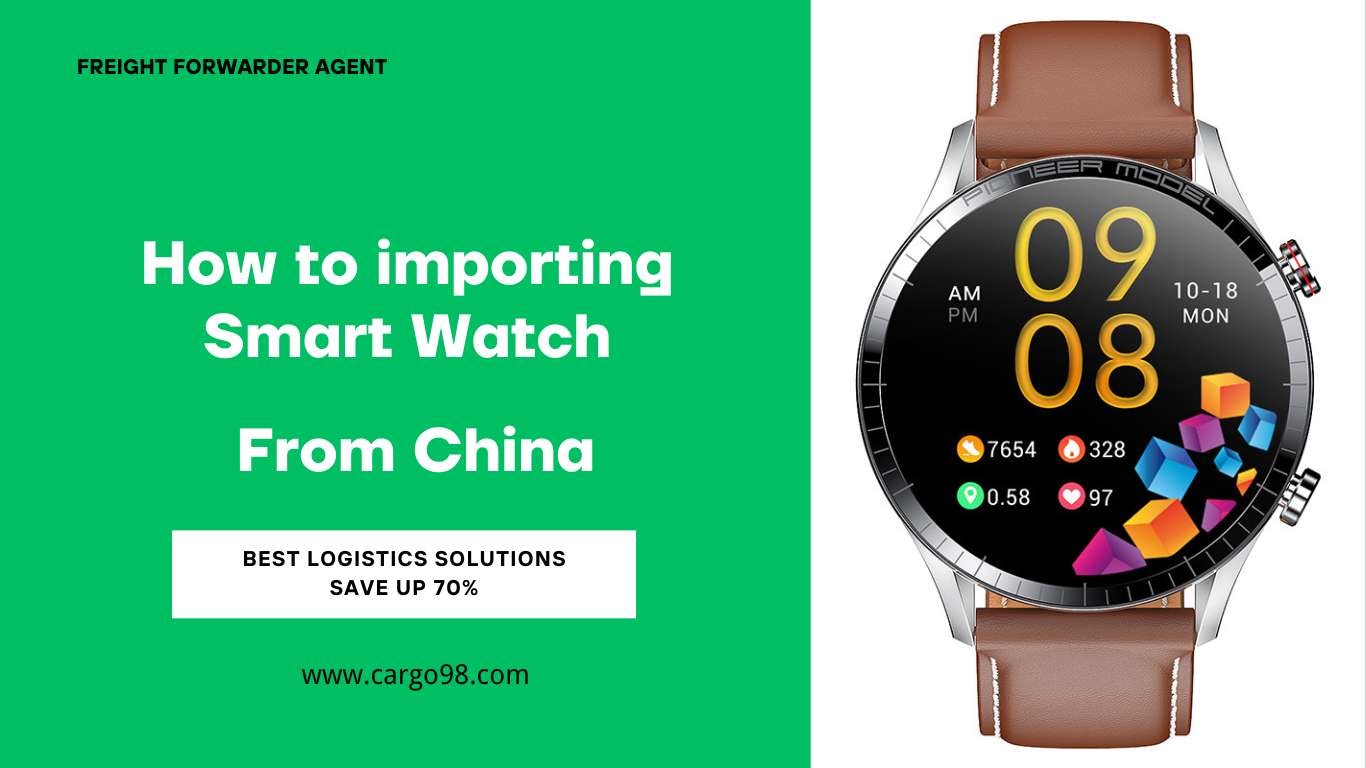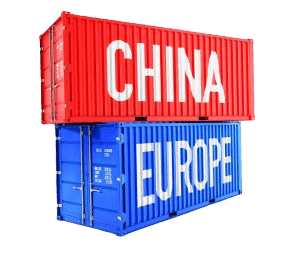Solar power is paving the way to a more sustainable future as the world embraces renewable energy sources more than ever. Solar panels are growing more popular in homes, companies, and industrial settings. These panels are critical for gathering and converting solar energy into clean, sustainable electricity. But have you ever considered the route these solar panels undergo before arriving at your rooftop or a solar farm? In this blog post, we’ll discuss the significance of shipping solar panels in an efficient and sustainable manner, acknowledging their critical role in creating a cleaner, greener world.
Understanding Solar Panels: An overview of solar panels, their types, and components.
Before delving into the fine details of transporting solar panels, it’s critical to first grasp what solar panels are and how they work. Solar panels, commonly known as photovoltaic (PV) panels, are the major source of solar electricity and the heart of solar energy systems. In this section, we will look at the fundamentals of solar panels, their various varieties, and the components that make them operate.
Solar Panels: The Basics
Solar panels, at their heart, are devices that catch sunlight and turn it into power. This technique, known as photovoltaic conversion, is based on the photovoltaic effect, which occurs when specific materials are exposed to sunlight and generate an electric current. Solar panels are typically constructed of semiconductor materials, the most common of which is crystalline silicon.
Types of Solar Panels
There are two main types of solar panels that are widely used:
- Monocrystalline Solar Panels: These panels are made from a single crystal structure, typically silicon. Monocrystalline panels are known for their high efficiency and sleek appearance. They are often preferred when space is limited, such as on residential rooftops.
- Polycrystalline Solar Panels: Polycrystalline panels are made from multiple silicon crystals. They are more cost-effective to produce but are slightly less efficient than monocrystalline panels. They are a popular choice for larger solar installations like commercial projects and solar farms.

Components of Solar Panels
Solar panels are made up of numerous main components, each of which plays a unique role in the energy conversion process:
Photovoltaic Cells: These are the individual components of a solar panel that turn sunlight into electricity. When exposed to photons of light, semiconductor materials generate electrical current.
Tempered glass is used to cover solar panels, which acts as a protective layer. This glass is made to survive harsh weather conditions such as rain, snow, and hail while still allowing light to pass through.
Encapsulation Material: A layer of encapsulation material surrounds and protects the solar cells from moisture and physical harm. This substance is often composed of ethylene-vinyl acetate (EVA).
Backsheet: The backsheet is a layer on the back of the panel that provides insulation as well as protection from humidity and the elements.
Many solar panels include an aluminum frame that gives structural stability and makes mounting easier. The frame also aids in heat dissipation, allowing the panel to operate efficiently.
Junction Box: This box houses the solar panel’s electrical connections. It collects the panel’s electrical output and routes it to the wire that connects the panel to the inverter and the rest of the electrical system.
Understanding the various types and components of solar panels is critical because it influences the considerations and care that must be taken when shipping these precious components. In the following sections of this blog article, we will look at the obstacles and best practices for shipping solar panels to ensure they reach in good condition.
Solar Panel Shipping Difficulties: Investigating the specific obstacles and considerations while shipping solar panels.
Shipping solar panels involves a unique set of obstacles that necessitate meticulous preparation, experience, and attention to detail. The nature of solar panels, their fragility, value, and the global desire for clean energy solutions all have an impact on these difficulties. In this section, we’ll look at the special challenges and considerations that come with exporting solar panels, as well as how freight forwarding businesses deal with them.
- Solar panels are delicate, and even mild accidents can result in cracks or damage to the solar cells. Because of their fragility, careful handling, tight packaging, and protective measures are required throughout the transportation process.
- Weather and Environmental Factors: Solar panels are frequently transported over great distances and might be subjected to a variety of weather conditions. Extreme temperatures, humidity, and environmental exposure can all have an impact on their effectiveness and lifetime. It is critical to ensure sufficient transit protection.
- Compliance with Customs and Regulatory Requirements: International transportation of solar panels necessitates adherence to a variety of customs rules, import/export limitations, and quality standards. It is critical to navigate these regulatory frameworks in order to avoid delays and legal complications.
- Timely delivery of solar panels is critical, especially for projects with tight construction timetables. Delays can result in additional costs, missed deadlines, and a reduction in energy production.
- Proper packaging and handling are essential for preventing breakage and maintaining the performance of solar panels. Freight forwarders must ensure that the packaging materials are suitable for the type and size of the panels.
- Modes of Transportation: Choosing the best means of transportation (air, sea, or land) is a vital decision that affects both the cost and the safety of solar panel shipments. Each mode has advantages and disadvantages.
- Transportation Sustainability and Carbon Footprint: In an era of increasing environmental awareness, the carbon footprint of transportation is a major problem. Shipping’s environmental impact can be reduced by using eco-friendly transportation techniques and optimizing routes.
- Shipping cost management is a difficult task because it requires balancing speed, safety, and expenses. Freight forwarders must deliver cost-effective solutions without sacrificing service quality.
- Security and Theft Avoidance: Because solar panels are important commodities, they may be stolen. It is critical to implement security measures and tracking systems to protect the goods during transportation.
- Accuracy and paperwork: Shipping solar panels necessitates proper documentation, such as bills of lading, certificates of origin, and import licenses. Paperwork errors might result in customs delays and additional costs.
- Insurance and Risk Mitigation: Solar panels are a big investment, and the risk of loss or damage during transit is real. To protect their clients, freight forwarders must provide insurance choices and risk reduction measures.
- Environmentally Friendly Practices: Shippers are increasingly seeking for eco-friendly methods in the logistics industry as the emphasis on sustainability grows. Reducing emissions and implementing green transportation solutions are critical considerations.

Choosing the Right Freight Forwarder: solar panels shipping
Choosing the correct freight forwarding company is an important step in guaranteeing the safe and effective shipping of solar panels. Solar panel logistics necessitate specific knowledge, experience, and attention to detail, making it critical to select a freight forwarder who specializes in this area. In this section, we’ll go over how to choose a dependable freight forwarding partner for your solar panel shipments.
Work Experience in the Industry
Begin by assessing the freight forwarder’s experience with solar panel shipments. Look for a company that has a track record of success in the solar energy market, as they are more likely to grasp the unique issues and requirements related with solar panels.
References and Reputation
Investigate the company’s reputation and request references from prior clients. Reading reviews and testimonials can provide you with information about their performance, dependability, and client happiness.
Certification and Licensing
Check to see if the freight forwarder has the relevant permits and certificates for international shipping. Accreditation is provided to reputable freight forwarders by organizations such as the International Air Transport Association (IATA) and the International Federation of Freight Forwarders Associations (FIATA).
Documentation and compliance
A reputable freight forwarder should be well-versed in customs procedures, import/export documentation, and solar panel quality standards. They should be able to manage complicated paperwork quickly and accurately.
Global Reach and Network
For smooth international shipment, a large network of partners and agents in numerous countries is required. Check if the freight forwarder has a large global presence and understands the complexities of cross-border logistics.
Packaging and Handling Knowledge
Because solar panels are fragile, inquire about the company’s packaging and handling standards. They should be familiar with the use of appropriate materials and methods for protecting the panels during transit.
Modes of Transportation
Examine the freight forwarder’s ability to provide a range of transportation modes, such as air, sea, and land, to satisfy your specific shipping requirements. They should be able to advise you on the best mode for your solar panels.
Optional Insurance
Inquire about the freight forwarder’s insurance alternatives for your solar panel shipments. Adequate insurance coverage is essential to safeguarding your investment in the event of loss or damage during transit.
Environmental Concerns
Consider freight forwarders who demonstrate a commitment to environmentally friendly methods if sustainability is a priority for your firm. They may provide green mobility options or have carbon-reduction plans in place.
SHIPPING SOLAR PANELS Costs
A clear and competitive pricing system is required. Request precise quotes that contain all applicable prices, and be certain that there are no hidden extras.
Customer Service and Communication
A successful shipping cooperation is dependent on effective communication. Select a freight forwarder who is receptive to your individual wants and problems.
Proven track record of on-time delivery
Solar panel projects require on-time delivery. Inquire about the freight forwarder’s track record for fulfilling delivery deadlines, as well as their tactics for optimizing routes and schedules.
Selecting the right freight forwarder specializing in solar panel logistics is a critical decision that can greatly influence the success of your solar energy projects. By considering these factors and conducting thorough research, you can ensure that your solar panels are transported efficiently and securely to their destination, meeting the growing demand for clean energy solutions.
Streamline Your Solar Panel Shipments with RJ freight
Join the movement towards a sustainable future by supporting solar energy and advocating for responsible shipping practices. Are you in need of expert freight forwarding services for your solar panel shipments? RJ Freight, your trusted partner in Dubai, offers tailored logistics solutions to ensure the efficient and secure delivery of your valuable cargo. Contact us today to learn more and get started on your next solar energy project. Let’s power your success in the solar industry!
The Ultimate Guide to Amazon FBA Sourcing Agent Service: Do You Really Need It?
Amazon FBA Sourcing Agent Service
what strategy would most help an ecommerce business drive traffic to their website
what strategy would most help an ecommerce business drive traffic to their website







